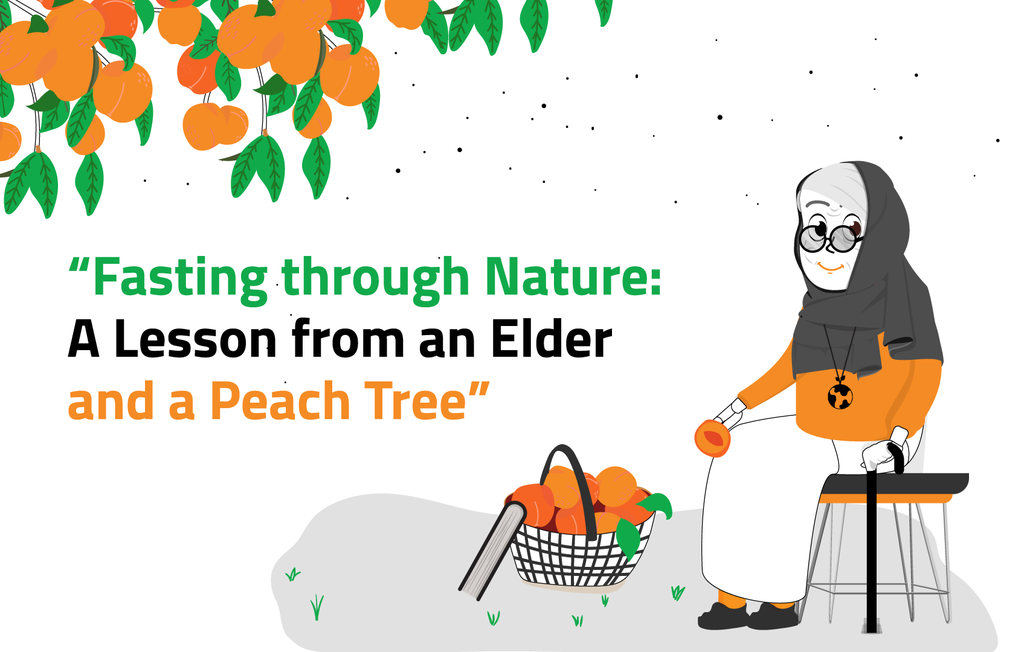
During the month of Ramadan, a few young men saw an elder sitting down and eating a peach under a tree in a secluded place during the day.
They were disturbed by her open flouting of the fast, so they went to ask, “Are you aware this is the Month of Ramadan? Why aren’t you fasting?”
The elder raised her eyes to them, slightly surprised, and replied, “What do you mean? I am fasting; I am just eating some food and drinking a few sips of water.”
The young group laughed and asked, “Oh, how can you fast in such a manner?”
The elder replied, “It’s simple; I nurtured and prepared the soil with care, and then I planted the peach tree as a gift to my community and future generations. I tended to the peach tree, even in times of drought, and made sure not to overwater it. I pruned the peach tree in the late winter and made sure to protect it from harmful chemicals and substances. With each passing day, I watched it bloom, and at the same time I cared for the garden of my heart through prayer, speaking only words of kindness, and serving my community with compassion.
Due to my old age, I can no longer fast from food, but I have set my intention to fast from ego, greed, exploitation, and selfishness. I am fasting from all that seeks to separate me from the beauty of God’s creations: the rest of nature, and this beautiful peach tree. And once the peaches ripened, sweet and true, I picked with gratitude only what was needed from the tree, and shared this small taste of heaven with my neighbours.”
As they listened to her words, the young men then embarrassedly turned to look at one another.
With sincerity and love, the elder then asked them, “So, are you fasting too?”
With heads bowed down, the young men replied, in a barely audible voice, “No, sadly not. We just don’t eat or drink.”
The elder went further and explained, “Our lives are the means by which we live out our faith. So let us tend to the gardens of our hearts and the gardens of the earth, and treat the care of our community and environment as a spiritual practice.”



